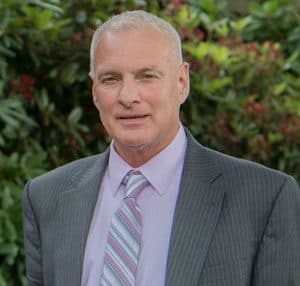 Don Grotting is the superintendent of the Beaverton School District. For more than 20 years, he has led school districts in rural and urban communities across Oregon. Grotting has received several awards and accolades for his work and leadership, including 2014 Oregon Superintendent of the Year from the American Association of School Administrators. He also sits on numerous boards and advisory committees, including the Governor’s Council on Education and Oregon’s State Board of Education.
Don Grotting is the superintendent of the Beaverton School District. For more than 20 years, he has led school districts in rural and urban communities across Oregon. Grotting has received several awards and accolades for his work and leadership, including 2014 Oregon Superintendent of the Year from the American Association of School Administrators. He also sits on numerous boards and advisory committees, including the Governor’s Council on Education and Oregon’s State Board of Education.
Grotting hails from the town of Coquille in southwestern Oregon where he a grew up in what he describes as extreme poverty. After three years in the military and more than a decade working in a sawmill in his hometown, Grotting enrolled in college in his mid-30s. Soon after, he took a job teaching elementary school in Powers, Oregon. Two years later he was invited to apply for the superintendent’s job for the small district. Since then, Grotting has served as superintendent in Nyssa and David Douglas school districts, experiences that have helped him focus on the needs of children before they enter the K-12 system.
Grotting was a key figure in the development of the Early Works initiative at Earl Boyles Elementary in Southeast Portland. Started in collaboration with Children’s Institute during Grotting’s first year as David Douglas School District superintendent in 2010, Early Works is a model for early learning and healthy development for children birth to five in an elementary school setting. At Earl Boyles, early learning programs, infant and toddler groups, parent engagement activities, and preschool support young children’s love of learning and prepares them for success when they enter kindergarten. After securing a voter-approved construction bond in 2012, Grotting prioritized construction of the Early Learning Wing and Neighborhood Center at Earl Boyles in 2014.
In this interview, Grotting reflects on his career, the importance of early learning, his goals for the Beaverton School District, and more.
Interview Highlights
[1:01] How Don’s upbringing and early life experiences and work in education have shaped his views on early childhood education.
[3:42] The importance of engaging parents to stimulate a child’s early success and connecting with Children’s Institute.
[5:44] Using a community needs assessment in the David Douglas community to better understand the needs and wants of parents and families that led to a bond approval and more supports to address the needs of children and parents: “It has been my greatest learning experience while I’ve been in education, but also has brought me the most satisfaction in making the biggest difference for kids.”
[8:35] “It truly has to be a partnership with parents. I truly believe that parents are their child’s first teacher, and until we really recognize that, appreciate it, and give it significance, we can’t help the children reach their maximum potential.”
[9:14] On how the Early Works initiative changed the learning community at Earl Boyles and integrated early learning efforts in the school environment.
[11:31] Beaverton’s school board is emphasizing early childhood education in all catchment areas.
[13:15] “Kids come to us in a lot of different ways and we have to meet each and every child where they come from and give them what they need to be successful.”
[17:50] On high-quality preschool and how to connect preschool to the K-12 system.
[20:01] Early learning as a tool for achieving education equity and close achievement gaps.
[21:25] “I’ve always said if I could do one thing, if it came down to a choice, I’d get rid of senior year of high school so we could come down and have a universal preschool.”
[21:52] Early learning as a cost saving mechanism for K-12.
[27:08] On the importance of professional development for teachers and administrators.
[28:15] Don’t forget about school boards when thinking about changing systems.
[29:50] If he could design a perfect education system to meet the needs of all kids.
[31:33] Obstacles and goals for Oregon’s next steps.
[33:17] “I truly believe it’s the key to close the achievement gap, to make a true difference for each and every child in Oregon. It will level the playing field and it has the ability to really change the economic landscape for Oregon.”
